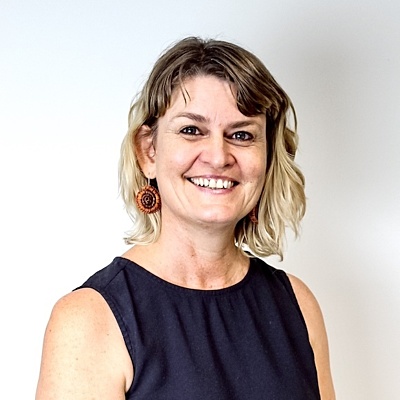Diploma helping build healthy organisations in the top end
Posted on 04 Apr 2022
By Matthew Schulz, journalist, Our Community

Le Smith was an accomplished leader in Darwin before she took on ICDA’s Diploma of Governance in 2020 with the help of a part-scholarship, but she says the course generated “a whole new depth of understanding” for her as a volunteer board member and as a professional reporting to a board.

“Most surprising is maybe the fact that I thought governance was a very ‘dry’ subject, but it has a lot of richness and depth that I have found fascinating and fulfilling in my personal and work aspirations.”
Now a graduate, Ms Smith remains committed to helping to create a healthier population up north.
Ms Smith has recently been appointed as the Northern Territory manager of the Heart Foundation and as the organisation’s executive leader for equity.
Before that she was the NT Primary Health Network’s executive manager for regional health integration and a management committee volunteer for the NT Working Women’s Centre.
“The diploma has been very helpful in moving into the new role, as it has provided a good structure and foundation for understanding the organisation and how it operates,” she said.
She said the new Heart Foundation role required bringing together knowledge and “applied experience” and the diploma had been “a great foundation on which to build”.
“Having these skills behind me provides great confidence in my ability to contribute effectively and meaningfully.”
Good relationships the key to governance success in the NT
Asked about the environment for NFPs in her region, Ms Smith said not-for-profits in Australia’s north remained “under immense pressure” as they continued to battle with covid-19 responses, and the value of good governance could not be underestimated.
“Good governance helps maintain a solid foundation to support good decision making and ensure responsibilities, policies and practices are appropriately managed and risks mitigated,” she said.
She said the challenges were different in the NT, describing the work of community organisations there as “highly relational”.
“Trusted relationships that stand over time, that are respectful and understanding of context, culture and connection, and that work in authentic partnership and community empowerment models are highly valued”.
That meant, for instance, that good governance in the NT “must consider Indigenous governance frameworks, including self-determination and regional and cultural decision making”.
Diploma creates opportunities for impact
Ms Smith said she had been able to apply what she’d learnt in a range of areas including policy, communications, management, and board strategic planning.
But it was hearing about other students’ stories and experiences that stood out as a highlight of the course.
“There are so many good and passionate people that are hugely skilled in their areas, and who have willingness to keep learning and sharing.”
Ms Smith said she was considering which community board she might contribute to next, and “being a community director gives me fresh opportunities to contribute to things I am passionate about”.
Ms Smith won a women’s leadership scholarship in 2020 and more scholarships for women are available now, along with scholarships in these areas:
- Aboriginal and Torres Strait Islander
- Advocacy
- Arts governance
- Board diversity
- Climate action
- Community health
- Faith-based
- Mental health support
- Rural and regional
- Sports governance
- Treasurers